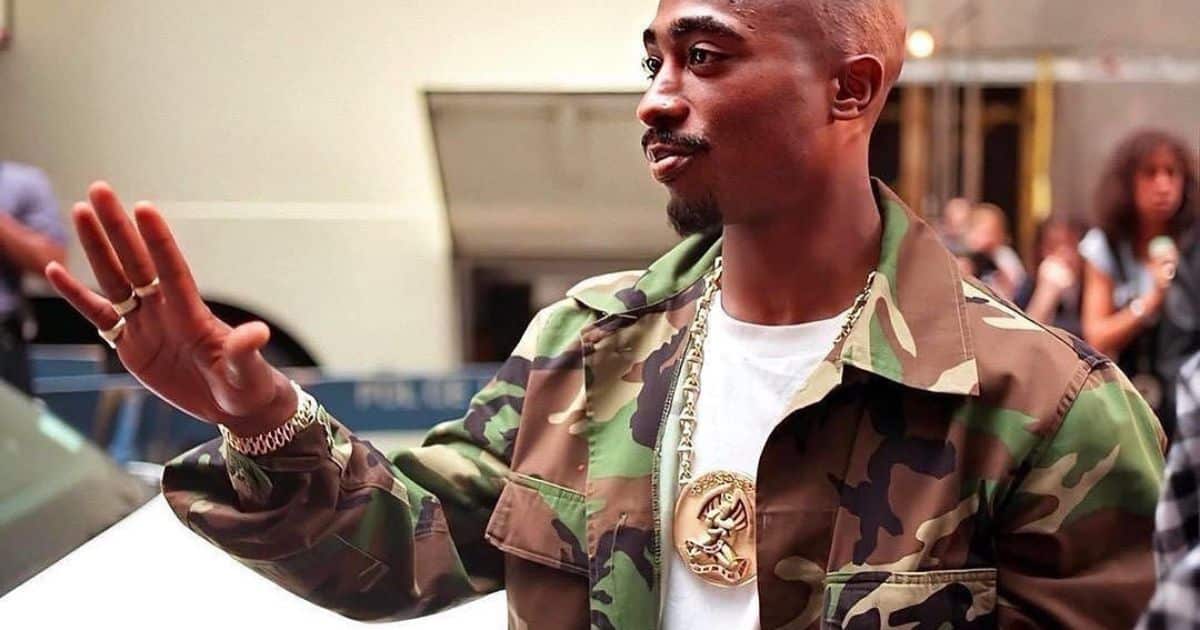Tupac Shakur, also known as 2Pac, was a rapper, actor, and activist who rose to fame in the 1990s. He was born in East Harlem, New York City, in 1971 and grew up in a politically active family. His mother, Afeni Shakur, was a Black Panther and a political activist, and his stepfather, Mutulu Shakur, was also involved in political activism. Tupac’s upbringing had a profound influence on his worldview and led him to become an outspoken advocate for social and political change. In this article, we will explore Tupac’s activism and examine how his social and political influence continues to resonate with people today.

Tupac Clothing & Merchandise
Show your respect for one of the greatest legends in hip-hop: 2Pac. Get ready to step up your style game with a stunning range of Tupac Amaru Shakur merchandise, from vintage t-shirts and baseball jerseys to unique bomber jackets! Don’t miss this opportunity – honor his legacy by sporting some must-have Makaveli apparel at unbeatable prices. Hustle those streets like Pac and look the hottest in town – grab yours now!
Tupac’s early life and influences
Tupac’s early life was marked by poverty, violence, and instability. He and his family moved frequently, and he attended several different schools. Despite these challenges, Tupac showed an early talent for writing and poetry. He was also deeply influenced by the music of his time, including the soul and funk music of the 1970s and the emerging hip hop culture of the 1980s. Tupac began rapping as a teenager and eventually became involved in the underground hip hop scene in Oakland, California. It was there that he was discovered by Digital Underground, a popular rap group, and began his career in music.
Tupac’s social and political messages in his music
Tupac’s music was known for its powerful and often controversial social and political messages. He used his lyrics to call attention to issues such as police brutality, poverty, racism, and political corruption. In his song “Brenda’s Got a Baby,” for example, Tupac tells the story of a young girl who becomes pregnant and is forced to live on the streets. The song highlights the devastating impact of poverty and the failures of the social welfare system. In “Changes,” Tupac addresses issues such as drug addiction, gang violence, and institutional racism. The song’s lyrics are a powerful indictment of the social and economic inequality that continues to plague society.
Tupac’s music was also deeply personal, reflecting his own struggles with poverty, violence, and racism. He often rapped about his experiences growing up in the inner city and the challenges he faced as a Black man in America. His music was a reflection of his own life and the lives of millions of others who faced similar struggles.
Tupac’s activism outside of music
Tupac was not content to limit his activism to his music. He was a vocal and passionate advocate for social and political change and used his platform to speak out against injustice. He participated in protests and rallies, spoke at schools and community events, and used his celebrity to draw attention to issues such as police brutality and racial inequality.
In 1992, Tupac spoke at a rally held in support of the Rodney King protests. His speech, which was later released as a recording, was a powerful call to action. “We gotta start making changes,” he said. “Let’s change the way we eat, let’s change the way we live, and let’s change the way we treat each other.”
Tupac was also involved in efforts to promote education and literacy. He founded the Tupac Amaru Shakur Foundation, which worked to provide arts programs and educational opportunities for young people. He believed that education was the key to breaking the cycle of poverty and violence that plagued many inner-city communities.
Tupac’s impact on the Black community
Tupac’s activism had a profound impact on the Black community. He was a voice for the voiceless and a symbol of hope for those who felt marginalized and oppressed. His music and his activism inspired a generation of young people to stand up for their rights and fight for justice. Tupac’s message of empowerment and self-determination resonated with many people who had been denied those opportunities.
Tupac was also a powerful advocate for Black unity. He believed that Black people needed to come together to fight for their rights and challenge the social and economic systems that oppressed them. His music and his activism helped to promote a sense of solidarity and community among Black people.
Tupac’s influence on hip hop culture
Tupac’s influence on hip hop culture was profound. He was one of the most successful and influential rappers of his time, and his music helped to shape the direction of the genre. His socially conscious lyrics and his willingness to address controversial issues set him apart from many of his contemporaries.
Tupac’s influence can be seen in the work of many of today’s most successful hip hop artists. His legacy continues to inspire new generations of rappers who are committed to using their music to promote social and political change.
Criticisms of Tupac’s activism
Despite his many accomplishments, Tupac’s activism was not without its critics. Some argued that he was too confrontational and that his message was too focused on anger and revenge. Others criticized his portrayal of women in his music, which was often sexist and misogynistic.
Tupac’s activism was also criticized by some in the mainstream media, who saw him as a dangerous and controversial figure. His outspokenness and his willingness to challenge the status quo made him a target for criticism and scrutiny.
Legacy of Tupac’s activism
Tupac’s activism continues to inspire and influence people today. His music and his message have become a part of the cultural lexicon, and his legacy has been celebrated by artists, activists, and scholars around the world. His work has helped to raise awareness of social and political issues and has inspired countless people to take action and make a difference.
Tupac’s activism is a testament to the power of art and the potential of popular culture to effect social change. His message of empowerment, unity, and self-determination continues to resonate with people today, and his legacy will continue to inspire future generations of activists and artists.
Tupac’s relevance in today’s social and political climate
Tupac’s message is more relevant today than ever before. The issues he addressed in his music and his activism, such as police brutality, institutional racism, and economic inequality, continue to be major challenges facing society today. His call for unity and solidarity among Black people is especially important in a time when the country is grappling with issues of racial justice and social equity.
Tupac’s activism is a reminder that we all have a role to play in creating a more just and equitable society. His message of empowerment and self-determination is a call to action for all of us to work towards a better future.
-
 All Eyez On Me Tupac Shakur Hollywood City Art Cool Swim Shorts
All Eyez On Me Tupac Shakur Hollywood City Art Cool Swim Shorts -
 2Pac Amaru Shakur Praying Tribute Art Black Men’s Shorts
2Pac Amaru Shakur Praying Tribute Art Black Men’s Shorts -
 Tupac Thug Life Gang Shot Money Art Dope Swim Shorts
Tupac Thug Life Gang Shot Money Art Dope Swim Shorts -
 Thug Life 2Pac Shakur Monochrome Photos Art Black Beach Shorts
Thug Life 2Pac Shakur Monochrome Photos Art Black Beach Shorts -
 American Rapper 2Pac Shakur Cross Tribute Art Men’s Shorts
American Rapper 2Pac Shakur Cross Tribute Art Men’s Shorts -
 2Pac Makaveli Shakur Number Logo Art Awesome Swim Trunks
2Pac Makaveli Shakur Number Logo Art Awesome Swim Trunks -
 Rap Icon Tupac Amaru Shakur Barbed Wire Flame Art Board Shorts
Rap Icon Tupac Amaru Shakur Barbed Wire Flame Art Board Shorts -
 Hip-Hop Rapper 2Pac Shakur Fire Artwork Black Swim Shorts
Hip-Hop Rapper 2Pac Shakur Fire Artwork Black Swim Shorts -
 Tupac Shakur Fuck The World Vintage Photo Collage Beach Shorts
Tupac Shakur Fuck The World Vintage Photo Collage Beach Shorts
Conclusion
Tupac Shakur was an artist, activist, and icon whose legacy continues to inspire and influence people today. His music and his message were a powerful force for social and political change, and his activism helped to raise awareness of the many challenges facing society. Tupac’s legacy is a reminder of the power of art and the potential of popular culture to effect social change. His message of unity, empowerment, and self-determination is more relevant today than ever before, and his legacy will continue to inspire future generations of activists and artists.

